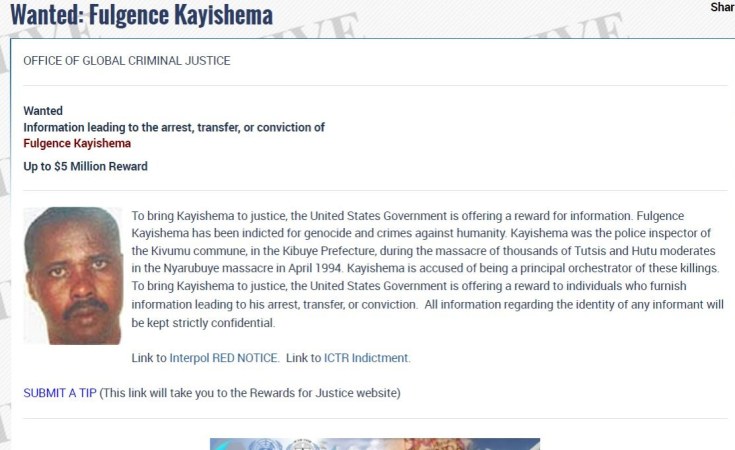Rwanda has welcomed the arrest of Fulgence Kayishema, one of the fugitives most wanted for crimes they committed during the 1994 Genocide against the Tutsi.
Kayishema, who has been on the run for more than 20 years, was arrested in South Africa on Wednesday, May, 24, in a joint operation by the International Residual Mechanism for Criminal Tribunals (IRMCT) and South African authorities.
ALSO READ: 'Most wanted' Genocide fugitive Kayishema arrested
"We thank the Office of the Prosecutor of the IRMCT that worked with Rwandan Prosecution and South African authorities to ensure that genocide fugitive Fulgence Kayishema will finally face justice," the Office of the Government Spokesperson said in a statement on Thursday.
"Nearly 30 years later, we have a long list of Rwandan genocide fugitives still at large in several countries around the world, and we will continue to work with partner states and institutions to ensure that they are held to account for crimes committed in the 1994 Genocide against the Tutsi."
ALSO READ: Where are the 1,100 Genocide fugitives?
In 1994, Kayishema was the head of the judicial police in the former Kibuye prefecture.
Kayishema is alleged to have orchestrated the killing of approximately 2000 Tutsi refugees - women, men, children and elderly - at the Nyange Catholic Church during the 1994 Genocide against the Tutsi in Rwanda.
In 2012, the UN tribunal ruled that upon his arrest, Kayishema would be transferred to Rwanda for trial.
ALSO READ: ICTR hands over Kayishema's files
"Kayishema's arrest demonstrates yet again that justice can be secured, no matter the challenges, through direct cooperation between international and national law enforcement agencies," said IRMCT Chief Prosecutor, Serge Brammertz.
For more than 20 years, Kayishema relied upon a network of trusted supporters, including family members, members of the former Rwandan army and FDLR, and those aligned with the genocidal Hutu Power ideology, the IRMCT said.
Kayishema was located and arrested through an analysis-driven investigation exploiting multi-source evidence with both traditional and leading-edge methodologies.


